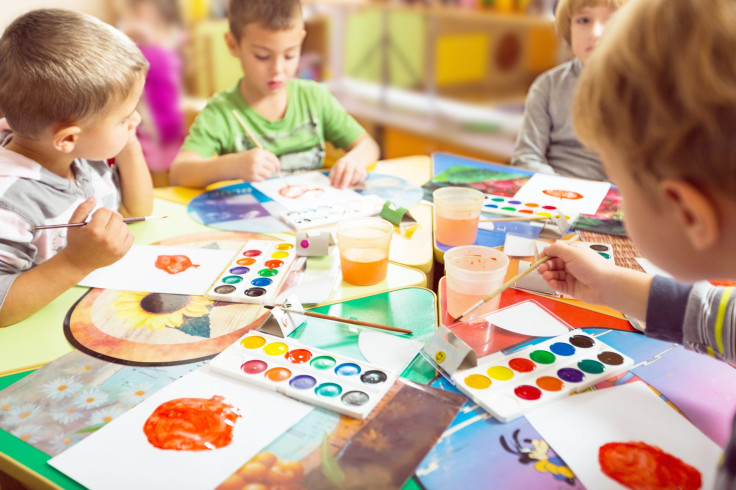Social Competence In Kindergarten May Predict School, Work, And Life Success Later On

Your kindergartner’s social skills may be an indicator of their future success, according to Penn State researchers.
In a study that spanned about 20 years, subjects were evaluated both as kindergartners and as young adults to provide data concerning social competence. Teachers rated their social competence as kids in the first phase of the study, and researchers followed up years later to assess the participants on occupational and social success. Turns out, the students who demonstrated more prosocial behavior in kindergarten were more likely to be well-employed, have graduated from college, and less likely to have been arrested than other students come their 20s.
"This research by itself doesn't prove that higher social competence can lead to better outcomes later on," said Damon Jones, senior research associate, Bennett Pierce Prevention Research Center, in a press release. "But when combined with other research, it is clear that helping children develop these skills increases their chances of success in school, work, and life."
The teachers rated children on eight different categories using a five-point scale. The categories were meant to assess how socially competent the child was and included things like “shares with others” and “is helpful to others.”
Researchers then compared these assessments to the students’ scores in five areas surveyed in their early 20s. These areas of assessment included education and occupational status, along with public assistance and criminal record.
For every one point increase in a student’s social competency, their chances of graduating doubled and they were 46 percent more likely to have a full-time job by the age of 25. For every one point decrease, the student’s risk of being arrested was 67 percent higher, and their chance of being in or on a waiting list for public housing was 82 percent higher.
The study involved a sample size of 700 students, most of whom represented lower socioeconomic neighborhoods. Results were controlled, however, for poverty, stress, race, neighborhood crime, and the child’s aggression and reading levels in kindergarten.
"The good news is that social and emotional skills can improve, and this shows that we can inexpensively and efficiently measure these competencies at an early age," Jones said. "Evidence from numerous intervention studies indicate that social and emotional learning skills can be improved throughout childhood and adolescence."
The research team plans to continue its research on how social competency can influence future behaviors.
Source: Jones D, Greenberg M, Crowley M. Early Social-Emotional Functioning and Public Health: The Relationship Between Kindergarten Social Competence and Future Wellness. American Journal of Public Health. 2015.
Published by Medicaldaily.com



























